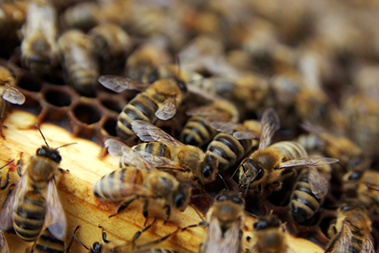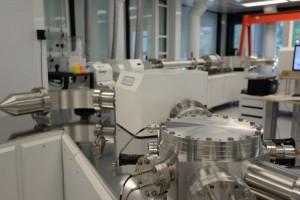
Researchers at PCIGR have been working with Hives for Humanity on determining the concentrations of trace metals (e.g., lead, zinc, arsenic, copper and cadmium) in honey, a challenging organic material to analyze. Results show that the urban honey produced by Hives for Humanity is entirely safe for human consumption.
The research team is also measuring the Pb isotopic composition of the honey to track the sources of these metals and potential pollutants. Because bees forage in a three-kilometre radius from their hive, each hive represents a tiny sample of the local environment. As such, the results help to monitor air quality and identify various sources of pollution in Metro Vancouver. In the long-term, the study will also help establish a baseline of metal distribution across the Lower Mainland.

The honey study was recently showcased in a feature article and video by UBC Science, “A Sweet Chemical Analysis.”
Hives for Humanity is a non-profit society that operates from the Downtown Eastside neighbourhood of Vancouver. The society encourages community connections through its programs, which includes beekeeping.